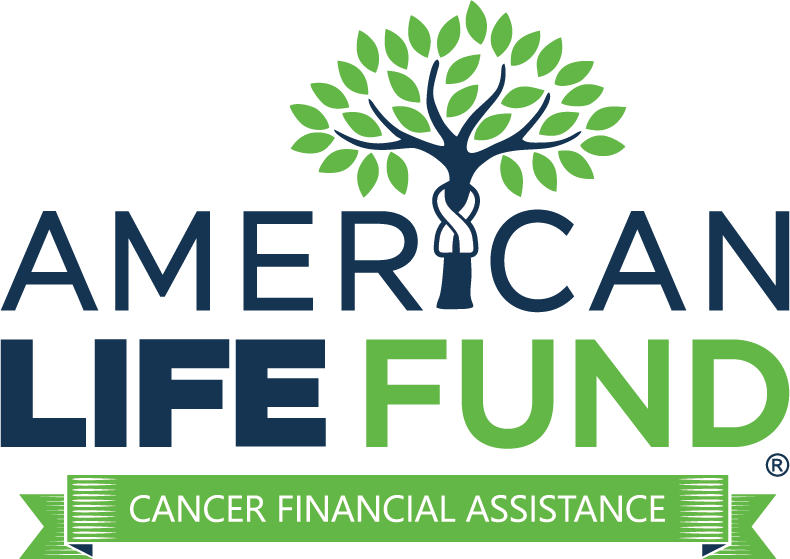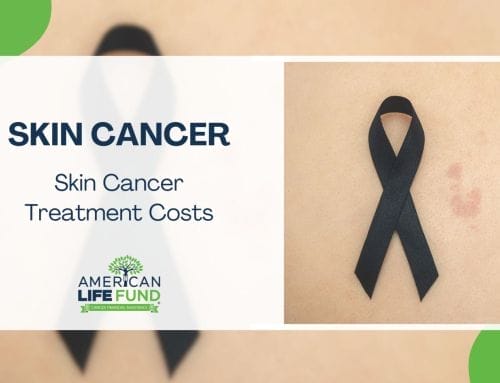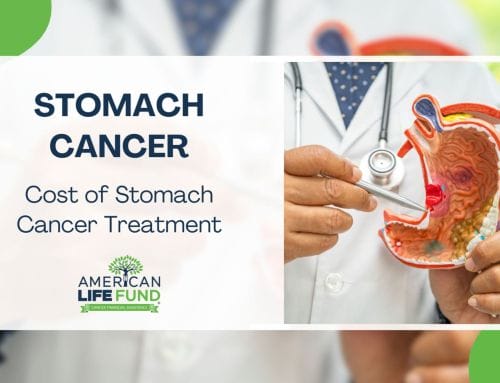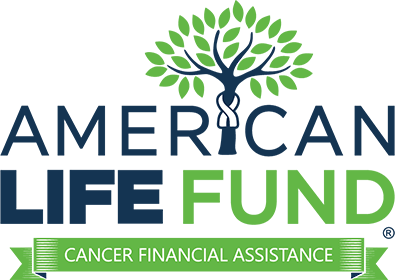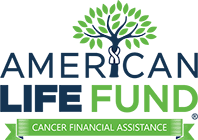The American Cancer Society’s data paints a stark picture. In 2022, more than 25,000 individuals in the United States were diagnosed with malignant brain or spinal cord tumors. It’s worth noting that there are more than 120 distinct types of brain tumors, each presenting unique challenges and treatment requirements.
Dealing with brain cancer is not just a medical journey but also a financial one. The duration of brain cancer treatment varies, stretching from several weeks to well over a year. The financial burden associated with brain cancer treatment can be substantial, encompassing expenses like surgery, radiation therapy, chemotherapy, targeted therapy, and more. During these trying times, the lifeline of financial assistance can provide much-needed relief.
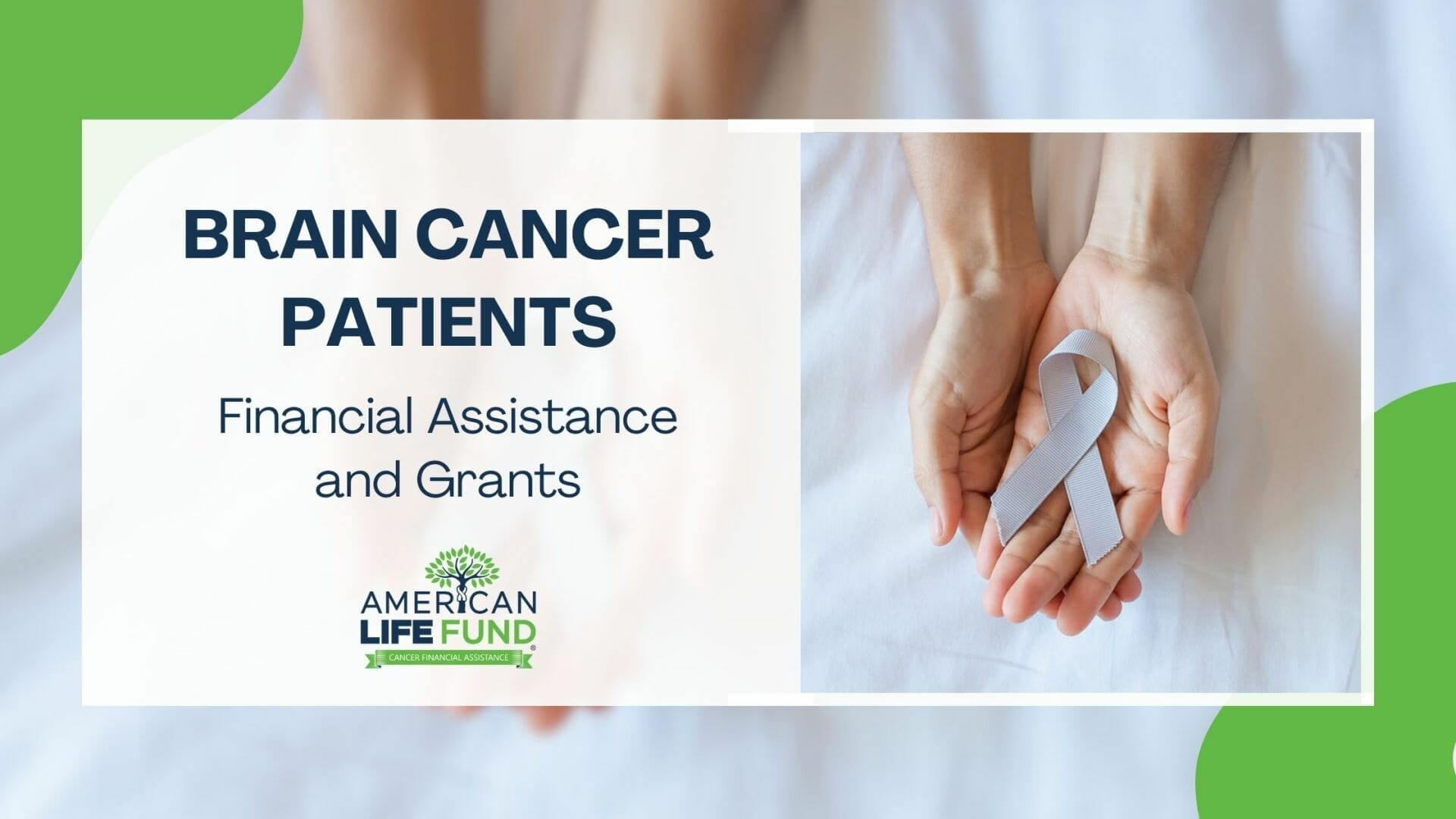
How To Find Financial Assistance For Brain Cancer Patients
Receiving a brain cancer diagnosis can be overwhelming, both emotionally and financially. Fortunately, numerous avenues exist for financial assistance to ease the burden. Here’s a step-by-step guide to help you find the support you need:
Start with Medical Providers
Begin by speaking with your medical team and the hospital’s financial counselors. They can provide insights into available programs and resources for your treatment and location. They may also assist in navigating insurance coverage and co-pay assistance.
Research Government Programs
Federal and state governments offer various programs to aid cancer patients. Investigate options such as Medicaid, Medicare, Social Security Disability Insurance (SSDI), and Supplemental Security Income (SSI). These programs may help cover medical expenses and provide additional support.
Explore Nonprofit Organizations
Many nonprofit organizations and foundations are dedicated to assisting cancer patients. Look for those specializing in brain cancer, such as the American Brain Tumor Association and the National Brain Tumor Society. These organizations often provide financial grants, support services, and educational resources.
Connect with Cancer Centers
Cancer centers and hospitals often have their assistance programs. Reach out to the financial assistance offices within these institutions to inquire about available aid, including grants, scholarships, and charity care programs.
Seek Local Assistance
Check with local community organizations, churches, and charities. They may offer financial help, transportation services, or meals to support patients and their families during treatment.
Utilize Online Resources
Numerous websites and databases compile information on financial assistance for cancer patients. Our website, for instance, provides a curated list of organizations and resources tailored to brain cancer patients.
Consult Support Groups
Joining cancer support groups or online communities can connect you with individuals who have navigated similar challenges. They can offer advice and share their experiences in finding financial assistance.
Speak to Social Workers
Hospital social workers are invaluable resources. They can guide you through seeking financial assistance connecting you with relevant resources and support programs.
Stay Informed
Keep yourself informed about healthcare policy and program updates and changes that may affect your financial assistance options.
You do not have to face the financial challenges of brain cancer alone. You can focus on your treatment and well-being without undue financial stress by exploring these avenues and seeking assistance.
Brain Cancer-Specific Financial Grants From Organizations
If you or a loved one is battling brain cancer, there are organizations dedicated to providing financial assistance through grants and support programs. Here’s a list of such organizations, along with instructions on how to contact them:
American Brain Tumor Association (ABTA)
- ABTA is dedicated to providing information, support, and resources for brain tumor patients and their families while funding research efforts to find a cure.
- Website: www.abta.org
National Brain Tumor Society (NBTS)
- NBTS is committed to advancing research and supporting brain tumor patients, advocating for policies that benefit the community.
- Website: www.braintumor.org
The Brain Tumor Foundation
- This organization focuses on improving the quality of life for brain tumor patients by offering support services, educational resources, and access to clinical trials.
- Website: www.braintumorfoundation.org
CancerCare
- CancerCare offers professional counseling, financial assistance, and resources to help cancer patients and their loved ones cope with the challenges of a cancer diagnosis.
- Website: www.cancercare.org
Patient Advocate Foundation (PAF)
- PAF provides personalized case management services, financial assistance, and advocacy to help patients navigate the healthcare system.
- Website: www.patientadvocate.org
The SAMFund
- The SAMFund assists young adult cancer survivors with financial support and resources to help them move forward after cancer treatment.
- Website: www.thesamfund.org
Healthwell Foundation
- Healthwell Foundation offers financial assistance to underinsured individuals, helping them access life-saving medical treatments, including those for cancer.
- Website: www.healthwellfoundation.org.
Cancer Financial Assistance Coalition (CFAC)
- CFAC is a network of organizations working to help cancer patients access financial resources, including co-payment assistance and grants.
- Website: www.cancerfac.org
When contacting these organizations, inquire about their specific grant programs for brain cancer patients, eligibility criteria, application processes, and any deadlines. They are there to provide assistance and support during your brain cancer journey.
Government Financial Assistance Programs
Government programs can provide essential financial support to brain cancer patients. Explore the following programs and resources to see if you qualify for assistance:
Medicaid:
- Medicaid is a joint federal and state program that offers free or low-cost health coverage to eligible individuals and families with limited income.
- How to Apply: Visit the Medicaid or your state’s Medicaid websites to determine eligibility and apply.
Medicare:
- Medicare provides health coverage for people aged 65 and older and some younger individuals with disabilities. It covers many medical expenses, including cancer treatments.
- How to Apply: Learn about eligibility and the application process on the Medicare website.
Supplemental Security Income (SSI):
- SSI is a federal income supplement program that provides financial assistance to disabled adults and children with limited income and resources.
- Contact the Social Security Administration (SSA) to inquire about eligibility and the application process.
Social Security Disability Insurance (SSDI):
- SSDI offers financial assistance to individuals who have a disability that prevents them from working and have paid Social Security taxes.
- How to Apply: Contact the Social Security Administration (SSA) to determine eligibility and initiate the application process.
State-Based Assistance Programs:
- Many states have assistance programs to help individuals with medical expenses. These programs may vary by state.
- How to Apply: Visit your state’s official website or contact your local Department of Health and Human Services for information on state-specific programs.
Children’s Health Insurance Program (CHIP):
- CHIP provides low-cost health coverage for children in low-income families. Coverage may include cancer treatment for eligible children.
- How to Apply: Visit the CHIP website to check eligibility and apply.
Affordable Care Act (ACA) Marketplace:
- The ACA Marketplace offers health insurance plans, and premium subsidies may be available to those with qualifying income levels.
- How to Apply: Visit HealthCare.gov to explore your options and apply for coverage.
Veterans Affairs (VA) Benefits:
- If you are a veteran, the VA offers various healthcare benefits, including cancer treatment and financial assistance.
- How to Apply: Contact your local VA office or visit the official VA website for eligibility and application procedures.
Housing Financial Assistance
Managing housing expenses can be a significant challenge for brain cancer patients and their families. Fortunately, various housing assistance programs and resources are available to help alleviate this burden. Explore the following options:
Temporary Assistance for Needy Families (TANF):
- TANF provides financial assistance to low-income families for basic needs, including housing.
- How to Apply: Contact your state’s TANF office or visit the Benefits.gov website for eligibility and application information.
Section 8 Housing Choice Voucher Program:
- This federal program assists eligible low-income individuals and families to find affordable housing in the private rental market.
- How to Apply: Contact your local Public Housing Agency (PHA) to apply and learn about the application process.
Homelessness Prevention Programs:
- Many local organizations and charities offer homelessness prevention programs that provide financial aid to those at risk of losing their homes due to medical expenses.
- How to Apply: Contact local housing nonprofits or community service agencies to inquire about available programs.
Hospital Social Workers:
- Hospital social workers can assist in identifying housing resources and programs specific to your medical condition, including brain cancer.
- How to Apply: Speak with the social worker at your treatment facility for guidance and support.
Patient Assistance Programs:
- Some pharmaceutical companies and nonprofit organizations offer patient assistance programs that can help cover housing-related costs for patients undergoing treatment.
- How to Apply: Contact the pharmaceutical company producing your medication or search for relevant patient assistance programs online.
Local Charities and Nonprofits:
- Many local charitable organizations provide financial assistance for housing expenses to individuals and families in need.
- How to Apply: Research and contact local charities and nonprofits to explore available housing support.
Community Action Agencies:
- Community Action Agencies offer various services to low-income individuals and families, including housing assistance.
- How to Apply: Locate your nearest Community Action Agency and inquire about housing assistance programs.
State and Local Housing Programs:
- Some states and municipalities offer housing assistance programs tailored to local needs.
- How to Apply: Check with your state or local housing authority or visit their websites for information on available programs.
Mortgage Payments
Managing mortgage payments can be especially challenging for brain cancer patients. Explore the following options for assistance:
Mortgage Assistance Programs:
- Government and nonprofit organizations offer mortgage assistance programs to relieve struggling homeowners financially.
- How to Apply: Check your state’s housing authority website or visit Benefits.gov for information on available mortgage assistance programs.
Forbearance Programs:
- Some mortgage lenders offer forbearance programs, allowing temporary suspension or reduction of mortgage payments during financial hardships.
- How to Apply: Contact your mortgage lender directly to discuss forbearance options.
Rent Payments
Rent payments can become a financial burden for brain cancer patients. Explore these sources for assistance:
Rental Assistance Programs:
- Government and nonprofit organizations offer rental assistance programs to help individuals and families facing difficulties with rent payments.
- How to Apply: Visit your state’s housing authority website or Benefits.gov for details on available rental assistance programs.
Local Nonprofits and Charities:
- Several local nonprofit organizations and charities provide financial aid for rent payments to needy individuals.
- How to Apply: Contact local charities and nonprofits in your area to inquire about rent assistance programs.
Accommodation During Brain Cancer Treatment
Finding suitable accommodation during brain cancer treatment is crucial for your well-being. Explore these options:
Housing Near Treatment Centers:
- Hospitals and treatment centers offer lodging options or partnerships with nearby hotels for patients and their families.
- How to Find: Inquire with the treatment center’s patient services for information on available accommodations.
Ronald McDonald Houses:
- Ronald McDonald Houses provide housing for families of pediatric cancer patients near major treatment centers, including those with brain cancer.
- How to Apply: Visit the Ronald McDonald House Charities website to locate a nearby chapter and inquire about accommodation availability.

Utility Assistance
Utility bills can add to the financial strain during brain cancer treatment. Explore these sources for assistance:
Low-Income Home Energy Assistance Program (LIHEAP):
- LIHEAP provides financial assistance to low-income households to help cover heating and cooling costs, making it easier to manage utility bills.
- How to Apply: Visit the LIHEAP website or contact your state’s LIHEAP office for eligibility and application details.
Local Utility Company Programs:
- Many utility companies offer assistance programs, including bill discounts or deferred payments, to customers facing financial hardship due to medical expenses.
- How to Find: Contact your utility provider or visit their website to inquire about available assistance programs.
Transportation Assistance
Transportation can be a significant challenge for brain cancer patients who must travel to treatment centers and medical appointments. Explore these sources for assistance:
American Cancer Society’s Road to Recovery Program:
- The American Cancer Society offers the Road to Recovery program, free transportation to and from medical appointments for cancer patients.
- How to Access: Visit the American Cancer Society’s Road to Recovery Program page to learn more and request transportation assistance.
Local Medical Transportation Services:
- Most communities have volunteer-based or subsidized medical transportation services that offer rides to healthcare appointments, including cancer treatments.
- How to Find: Contact local senior centers, social services agencies, or healthcare providers in your area for information on available transportation services.
Financial Assistance For Child And Elder Care
Caring for loved ones during brain cancer treatment can be challenging. Explore these sources for financial assistance to help with child and elder care:
Family and Medical Leave Act (FMLA):
- FMLA allows eligible employees to take up to 12 weeks of unpaid leave per year to care for a family member with a serious health condition, including brain cancer.
- How to Access: Contact your employer’s human resources department to discuss FMLA eligibility and the application process.
Eldercare Assistance Programs:
- Some states and local governments offer programs that provide financial support and resources for elder care, including respite care services.
- How to Find: Visit the National Respite Network and Resource Center to search for respite care programs in your area.
Prescription & Treatment Assistance
Managing the cost of prescription medications and treatment can be a significant concern for brain cancer patients. Explore these sources for financial assistance:
Patient Access Network Foundation (PANF):
- PANF provides financial assistance to underinsured individuals for prescription medications and out-of-pocket treatment costs, including those related to brain cancer.
- How to Apply: Visit the Patient Access Network Foundation website to learn about eligibility and the application process.
NeedyMeds:
- NeedyMeds is a comprehensive resource for finding information on patient assistance programs and discount coupons for prescription medications.
- How to Access: Visit the NeedyMeds website to search for prescription assistance programs and access coupons.
Clinical Trials
Participating in clinical trials can offer brain cancer patients access to cutting-edge treatments and therapies. Explore these sources to learn more about clinical trials and how to find them:
National Cancer Institute (NCI) Clinical Trials:
- The NCI provides comprehensive information about cancer clinical trials, including brain cancer trials, eligibility criteria, and locations.
- How to Access: Visit the NCI Clinical Trials website to search for brain cancer clinical trials and find additional resources.
Cancer Centers and Hospitals:
- Many cancer centers and hospitals conduct clinical trials for various cancer types, including brain cancer. Contact your treatment center to inquire about available trials.
- How to Access: Contact your healthcare provider or treatment facility to discuss potential clinical trial opportunities for your condition.
Life Insurance
Life insurance can be crucial in providing financial security for your loved ones. However, circumstances like a brain cancer diagnosis allow you to explore options like life and virtual settlements. Here’s what you need to know:
Life Settlements
- A life settlement involves selling your life insurance policy to a third party for a large, lump sum cash payment, typically greater than the policy’s cash surrender value but less than the death benefit.
- When to Consider: You might consider a life settlement if you no longer need the policy, have difficulty paying premiums, or require funds for medical treatment or other expenses.
Viatical Settlements
- A viatical settlement is similar to a life settlement but specifically applies to individuals with terminal illnesses like brain cancer. It provides an opportunity to access a portion of the life insurance benefit while alive.
- When to Consider: Viatical settlements can help individuals with serious illnesses alleviate financial burdens and access funds for medical treatment, quality of life improvements, or anything else they choose to use the money for.
Fundraising And Crowdsourcing
Covering the costs associated with brain cancer treatment can be challenging. Fundraising and crowdsourcing are viable options to gather financial support and resources for your medical expenses. Here’s how you can get started:
Online Fundraising Platforms:
- Numerous online platforms, such as GoFundMe, Kickstarter, and Indiegogo, allow you to create fundraising campaigns to raise funds for medical bills, treatments, and related expenses.
- How to Start: Select a reputable fundraising platform, create a compelling campaign, and share it with your friends, family, and social media contacts.
Local Fundraising Events:
- Organizing local fundraising events, such as bake sales, charity runs, or community gatherings, can generate financial support and raise awareness about your situation.
- How to Organize: Partner with local businesses, community organizations, or support groups to plan and promote your fundraising event.
Support from Nonprofits and Charities:
- Several nonprofit organizations and charities offer financial assistance and guidance on fundraising efforts for individuals facing medical expenses.
- How to Find: Contact organizations like the American Cancer Society or CancerCare to inquire about available resources and fundraising support.
Personalized Fundraising Campaigns:
- Tailor your fundraising campaign to highlight your needs, medical journey, and goals. Share your story and engage your community in your cause.
- How to Succeed: Maintain transparency, provide updates on your progress, and express gratitude to your supporters throughout your fundraising campaign.
Legal and Financial Considerations:
- Important Note: When organizing fundraising efforts, consider legal and tax implications. Consult with legal and financial professionals to ensure compliance with regulations and proper handling of funds.
Financial Expectations For Brain Cancer Patients
Dealing with brain cancer can result in various financial concerns and questions. This section aims to address some of the common financial aspects and resources available to brain cancer patients:
Who To Contact For Brain Cancer Financial Assistance
Numerous organizations and resources offer financial assistance to brain cancer patients. To find help, reach out to:
- Your healthcare provider or hospital’s social worker for guidance.
- Cancer support organizations like the American Cancer Society or CancerCare for financial assistance information.
Frequently Asked Questions About Financial Assistance For Brain Cancer Patients
What Benefits Are Brain Cancer Patients Entitled To?
Brain cancer patients may be entitled to various benefits, including:
- Health insurance coverage for medical treatments.
- Disability benefits if their condition affects their ability to work.
- Financial assistance programs, such as Medicaid or Medicare, depending on eligibility.
Are There Any Free Items Or Gift Boxes For Brain Cancer Patients?
Some nonprofit organizations and cancer support groups offer free items or gift boxes to comfort and support brain cancer patients. These may include wigs, comfort items, or care packages.
- How to Access: Explore organizations like Headcovers Unlimited that offer free or discounted items to cancer patients.
Does Stage 4 Brain Cancer Qualify For Disability?
Brain cancer patients, including those with Stage 4 brain cancer, may qualify for disability benefits if their condition prevents them from working. Disability eligibility is determined by medical evidence and inability to engage in substantial gainful activity.
- How to Determine Eligibility: Contact the Social Security Administration or your country’s equivalent agency to inquire about disability benefits and the application process.
Navigating the financial aspects of brain cancer can be complex. However, resources and support are available to help you address these concerns and ensure you receive the assistance and benefits you may be entitled to.
Further Reading
